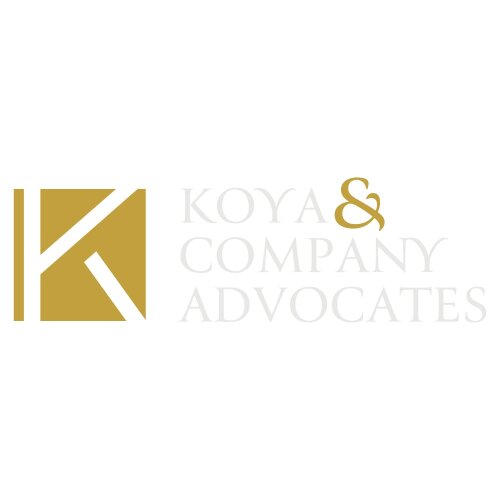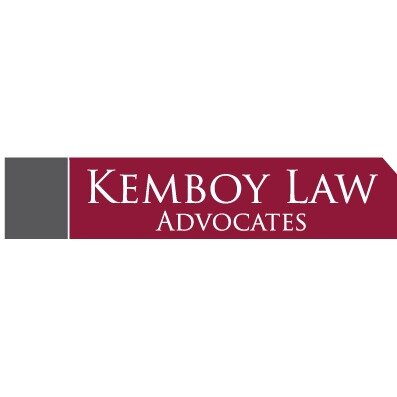Best Energy Regulatory Law Lawyers in Kenya
Share your needs with us, get contacted by law firms.
Free. Takes 2 min.
Or refine your search by selecting a city:
List of the best lawyers in Kenya
Legal guides written by Adroit Law LLP:
- Kenya Launches Digital Nomad Visa: A Gateway for Remote Workers
- Navigating the Payment System License Maze in Kenya
- Navigating the Complexities of Mining Licenses and Permits in Kenya: A Look into Artisanal and Large-Scale Operations
About Energy Regulatory Law in Kenya
Energy Regulatory Law in Kenya refers to the legal framework governing the production, transmission, distribution, and retailing of energy resources such as electricity, petroleum, and renewable energy. The law sets out the rules and standards for energy sector participants, protecting both consumers and investors while ensuring sustainable and efficient development of the country's energy resources. The Energy Act, 2019, is the primary legislation, establishing the Energy and Petroleum Regulatory Authority (EPRA) to oversee and regulate sector operations.
Why You May Need a Lawyer
Several scenarios might prompt you to seek legal assistance within Energy Regulatory Law in Kenya. Common situations include:
- Starting, operating, or expanding an energy business, such as a power generation company, fuel importer, or renewables developer.
- Handling licensing procedures, renewals, or compliance audits led by EPRA or other authorities.
- Resolving disputes over tariffs, land use, environmental compliance, or energy access.
- Negotiating and drafting contracts such as Power Purchase Agreements (PPAs) or Engineering, Procurement, and Construction (EPC) contracts.
- Pursuing or defending regulatory enforcement actions, penalties, or appeals following alleged breaches of the Energy Act or related regulations.
- Advising on public-private partnership arrangements for energy infrastructure projects.
- Guiding foreign investors on local energy market entry, compliance, and operation.
Local Laws Overview
Energy Regulatory Law in Kenya is mainly shaped by the Energy Act, 2019. This Act replaced previous legislation to address changing technology, devolution, and a diverse energy mix. Key aspects include:
- Licensing and Regulation: Sector participants must be licensed by EPRA to generate, transmit, distribute, or retail electricity, deal with petroleum or LPG, or operate renewable energy projects.
- Tariff Regulation: EPRA regulates electricity and downstream petroleum tariffs to protect consumers and ensure investor returns.
- Renewable Energy: The law encourages renewable energy development, mandating feed-in tariffs and promoting community participation.
- Consumer Protection: Consumers have rights regarding quality of service, dispute resolution, and fair pricing.
- Environmental and Land Use: Projects must comply with land acquisition, environmental impact, and county government requirements.
- Dispute Resolution: Disputes may be handled by EPRA, the Energy and Petroleum Tribunal, or the courts, depending on the matter.
Frequently Asked Questions
What is the Energy and Petroleum Regulatory Authority (EPRA)?
EPRA is the government regulator responsible for licensing, regulating, and monitoring energy and petroleum sectors in Kenya. It enforces compliance with local laws and handles consumer complaints.
Who needs a licence from EPRA?
Companies or individuals generating, transmitting, distributing, or selling electricity, handling petroleum or LPG, or developing renewable energy must obtain appropriate EPRA licences.
Are there special incentives for renewable energy projects?
Yes. Kenya's Energy Act and national policies provide feed-in tariffs, tax incentives, and streamlined licensing for renewable energy projects in solar, wind, small hydro, and biomass.
How are electricity tariffs set?
Tariffs are determined by EPRA following applications by energy providers. Factors include cost of supply, efficiency, infrastructure investment, consumer protection, and policy goals.
What steps are involved in obtaining an energy licence?
Applicants prepare required documents, submit them to EPRA, respond to stakeholder and public feedback, possibly undergo environmental and technical assessments, and await EPRA's decision.
What should I do if my energy licence is revoked or denied?
You may appeal to the Energy and Petroleum Tribunal within 30 days of the decision. Legal advice is recommended for preparing and presenting your case.
Can communities participate in energy projects?
Yes. The law encourages local community involvement, especially in renewable energy, through shared ownership, benefit-sharing, and public consultations.
How does Kenya handle off-grid and mini-grid energy?
Mini-grids and off-grid projects are regulated to ensure safety, reliability, and fair pricing. Special provisions make it easier for remote communities to access energy.
Is it mandatory to comply with environmental and county requirements?
Yes. Energy projects must comply with environmental law, including acquiring licenses from the National Environment Management Authority (NEMA), and respect county-level land use and zoning requirements.
What options exist for resolving disputes with energy companies or regulators?
Disputes may be resolved through EPRA dispute resolution, the Energy and Petroleum Tribunal, or civil courts. Negotiation and mediation are also options, depending on the complexity and nature of the dispute.
Additional Resources
If you need more information or support, consider these Kenyan resources:
- Energy and Petroleum Regulatory Authority (EPRA): The official government regulator for licensing, compliance, and consumer complaints.
- The Energy and Petroleum Tribunal: Handles sector-specific appeals and regulatory disputes.
- National Environment Management Authority (NEMA): For environmental licensing and approvals related to energy projects.
- Ministry of Energy and Petroleum: Offers policy updates and guidance for new and ongoing projects.
- Kenya Power and Lighting Company (KPLC): The primary electricity distributor, relevant for grid connections and supply issues.
- Kenyan Bar Association and Law Society of Kenya: For referrals to experienced energy law practitioners.
Next Steps
If you need legal assistance with Energy Regulatory Law in Kenya, start by clearly identifying your issue or objective, such as compliance, licensing, dispute resolution, or business set-up. Gather all relevant documents, correspondence, and details of any regulatory interactions so far. Next, seek an experienced energy regulatory lawyer or legal firm with a record in Kenya's energy sector. Professional advice can help you understand your rights, obligations, and possible outcomes, as well as represent you before authorities or in court if necessary. Be proactive, as regulatory timelines can be strict and certain procedures require timely responses.
Lawzana helps you find the best lawyers and law firms in Kenya through a curated and pre-screened list of qualified legal professionals. Our platform offers rankings and detailed profiles of attorneys and law firms, allowing you to compare based on practice areas, including Energy Regulatory Law, experience, and client feedback.
Each profile includes a description of the firm's areas of practice, client reviews, team members and partners, year of establishment, spoken languages, office locations, contact information, social media presence, and any published articles or resources. Most firms on our platform speak English and are experienced in both local and international legal matters.
Get a quote from top-rated law firms in Kenya — quickly, securely, and without unnecessary hassle.
Disclaimer:
The information provided on this page is for general informational purposes only and does not constitute legal advice. While we strive to ensure the accuracy and relevance of the content, legal information may change over time, and interpretations of the law can vary. You should always consult with a qualified legal professional for advice specific to your situation.
We disclaim all liability for actions taken or not taken based on the content of this page. If you believe any information is incorrect or outdated, please contact us, and we will review and update it where appropriate.
Browse energy regulatory law law firms by city in Kenya
Refine your search by selecting a city.

















